Sign in to your ScreenRant account
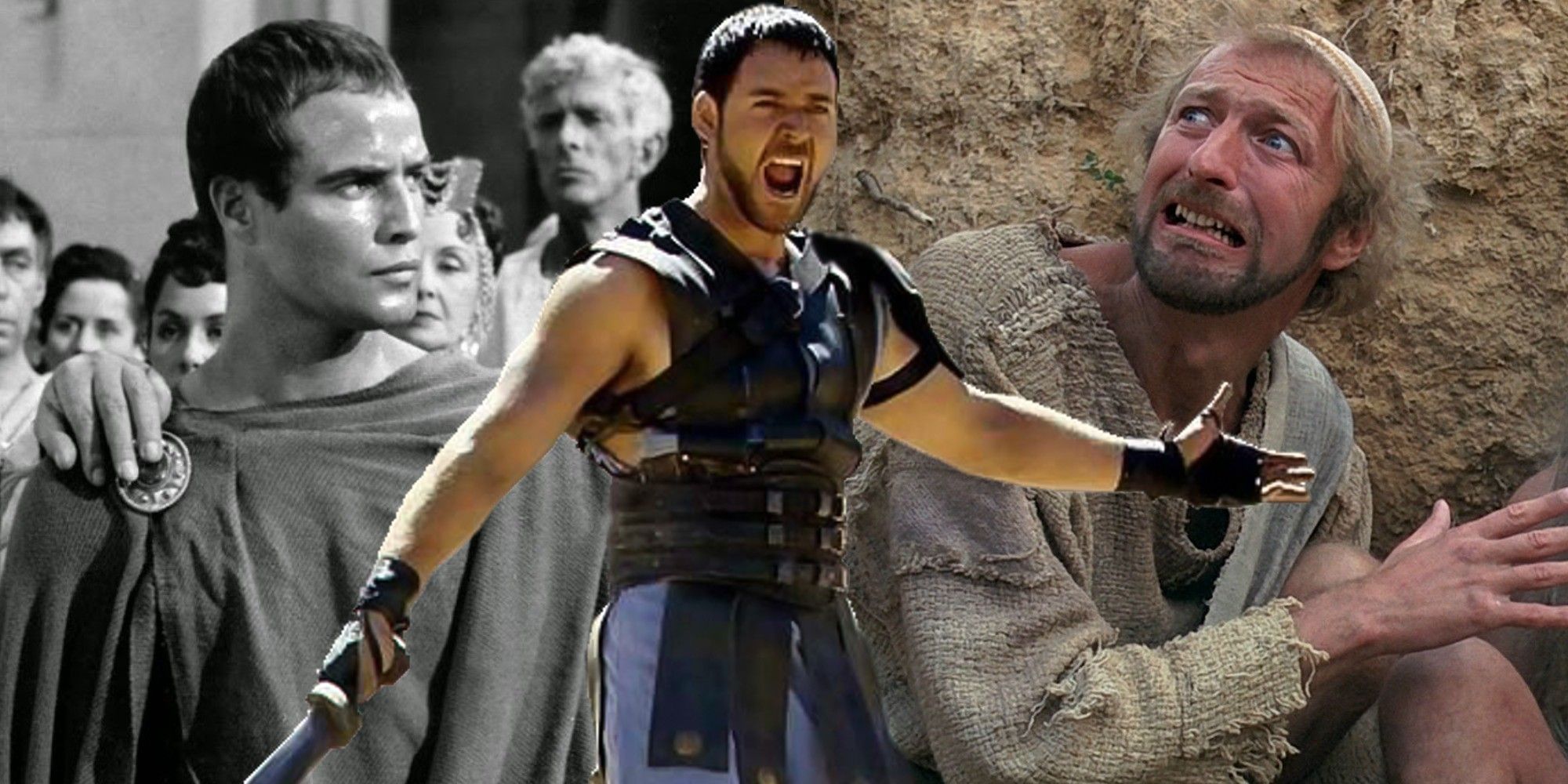 Custom image by SR Image Editor
Custom image by SR Image Editor
Movies about Rome often bring to memory emperors, gladiators, Julius Caesar, and aristocrats. Many people also think of William Shakespeare, as the Bard himself wrote frequently on the subject in his plays. Outside of Shakespeare and adaptations of his work, Ancient Rome played a big role in massive studio movies since the early days of silent films. Some of the most renowned movies in cinema history have been set in Ancient Rome, including some of the world's earliest blockbusters with headline-grabbing budgets, such as Ben Hur's then-recording-breaking $15 million dollar production cost in 1959.
Movies set in the Roman Empire fall into the "sword and sandal" movie subgenre, though the movies set in this specific corner of the ancient world are renowned for their tendency to have massive sets and budgets to match. The increased budget brought with it big risks, but the best movies set in Ancient Rome often ended up bringing awards recognition to the studios that took a chance on them. With multi-award-winning movies like Gladiator and Ben-Hur to the smaller, yet critically-beloved releases like Titus and Life of Brian, there are a wide variety of movies about Ancient Rome across multiple decades, budgets, and genres.

Related
25 Best Greek Mythology Movies
From classics like Spartacus to offerings from the 21st century like Troy (2004), Greek mythology movies often showcase Hollywood at its finest.
25 The Silver Chalice (1954)
A Greek Artist Is Commissioned To Make The Cup Of Christ
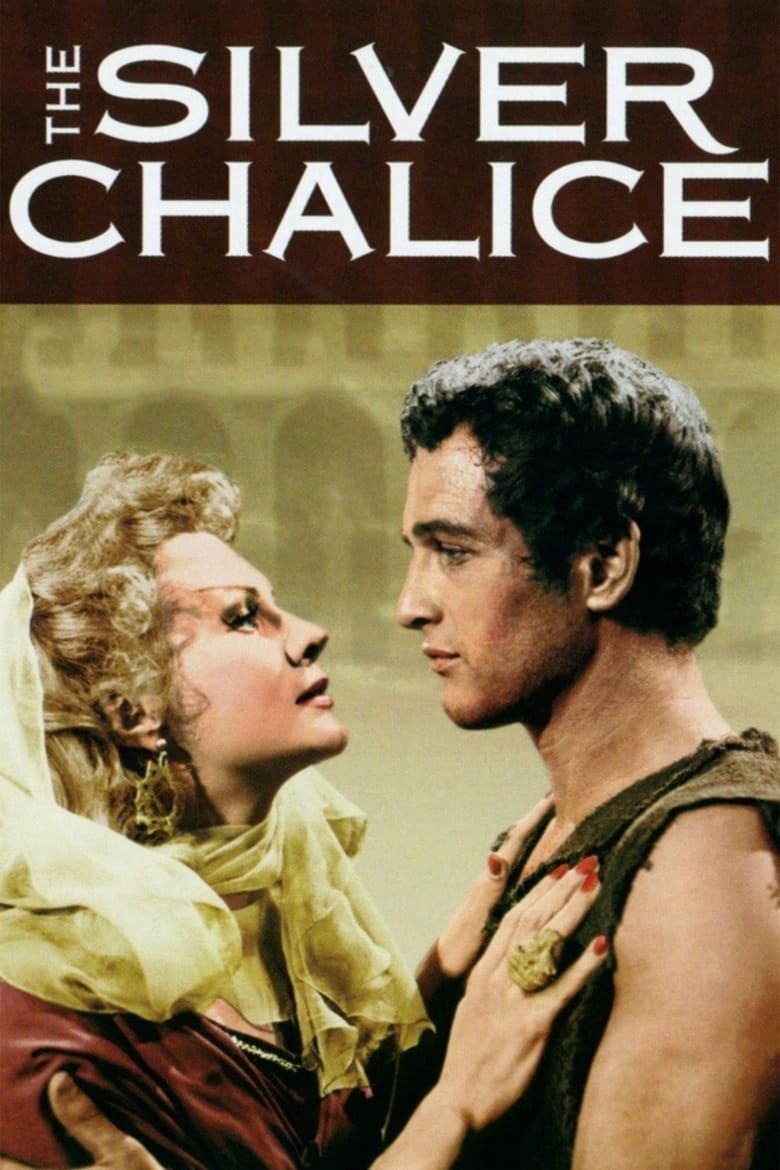
The Silver Chalice, released in 1954, follows a Greek artisan tasked with crafting a silver cup adorned with the faces of Jesus and the disciples. His journey takes him from Jerusalem to Rome, while contending with an impostor claiming to be the new Messiah using deceptive tricks.
Director Victor Saville
Release Date December 20, 1954
Writers Lesser Samuels
Runtime 142 minutes
Paul Newman is said to have hated his work in this movie, but that doesn’t stop it from having a lasting legacy. The Silver Chalice marked Newman’s feature film debut. Victor Saville acted as both director and producer of the movie, wanting to make an epic befitting of the novel of the same name on which it is based.
The story sees a Greek artisan asked to cast the chalice of Christ in silver with his disciples depicted around it. His journey takes him to both Jerusalem and Rome while someone else is busy trying to convince everyone he’s the new messiah.
The movie received largely mixed reviews when it was initially released because it didn’t look like other Hollywood biblical epics of the era, but that’s part of what makes it such an interesting look into the classic subgenre. The set pieces featured abstract decorations that differentiated it from Hollywood of the 1950s. That set design is part of why Martin Scorcese himself enjoys the movie. He called it a “guilty pleasure” in New York magazine in 1978. He also revealed the movie is what got him to hire art designer Boris Leven to work on his New York, New York.
24 Agora (2009)
Agora Takes The Action To Roman-Occupied Egypt
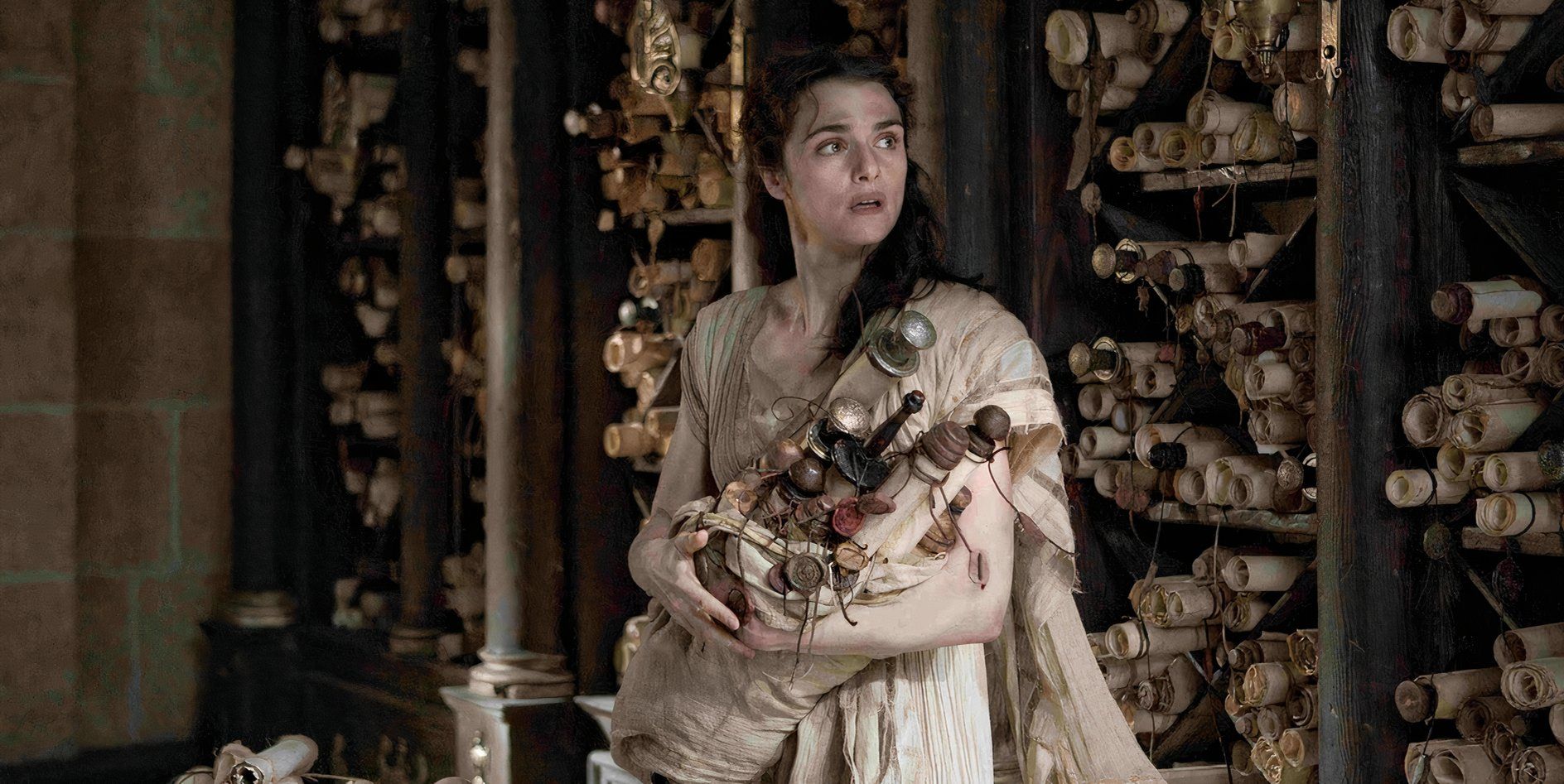
While most of the movies set in Ancient Rome are about wars or the conflict between Christianity and other religions, there are some, like The Silver Chalice, that set a love story in that setting. Agora is not that, but instead, a biopic, centering on Hypatia, one of the earliest female mathematicians, philosophers, and astronomers. She lived in Egypt in the fourth century, but it was an Egypt controlled by the Roman Empire.
Weisz is fantastic in the role and her performance is worth some of the lesser aspects of the script.
Here, Hypatia is played by Rachel Weisz as she researches the two conflicting views of astronomy - the popular view at the time was that the universe orbited the Earth, but a conflicting view that the Earth orbited the sun had emerged. Hypatia’s research plays out among the conflicts between Christians and Pagans. Even seeking refuge in libraries doesn’t exempt her from the conflict. Hypatia is viewed as a witch by the Christians who rise to power, and eventually, her life ends in tragedy.
While there are plenty of aspects of the story that are likely not historically accurate, so little is actually known about Hypatia’s life and so much of her scholarly research has been destroyed, that the movie doesn’t have to be accurate. Weisz is fantastic in the role and her performance is worth some of the lesser aspects of the script.
23 King Arthur (2004)
Roman History Is Infused With Arthurian Legend
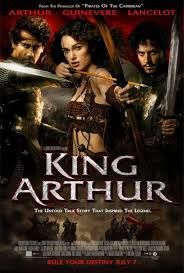
Arthur is a reluctant leader who wants to return to Rome and live in peace. However, he sets out on a rescue mission alongside the Knights of the Round Table when the Saxon army is about to attack.
Director Antoine Fuqua
Release Date July 7, 2004
Runtime 126 Minutes
The 2004 version of King Arthur is not the best version of the story. It is, however, one of the most creative interpretations of the legend of the ruler of Camelot. It’s also tied into the Roman Empire, which makes it an interesting addition to Ancient Roman movies. Though it’s not set in Rome itself, it’s set in England at a time when Roman soldiers were occupying it.
Arthur himself is the child of a Roman soldier and a Gaelic woman in this interpretation of the story. He grows disillusioned with the conflict between English natives and the Romans that occupy the land, and eventually, he grows to fight for his friends and neighbors when he realizes that the very Romans he’s been sent to protect have enslaved people.
Along the way, of course, the love triangle between Arthur, Lancelot, and Guinevere develops and Arthur rises to become king. Fusing the legend with the idea of Roman soldiers beginning to withdraw from Britain makes it unique, but not the best Ancient Roman story.
22 History of the World Part 1 (1981)
This Movie Spans More Than Just Ancient Rome
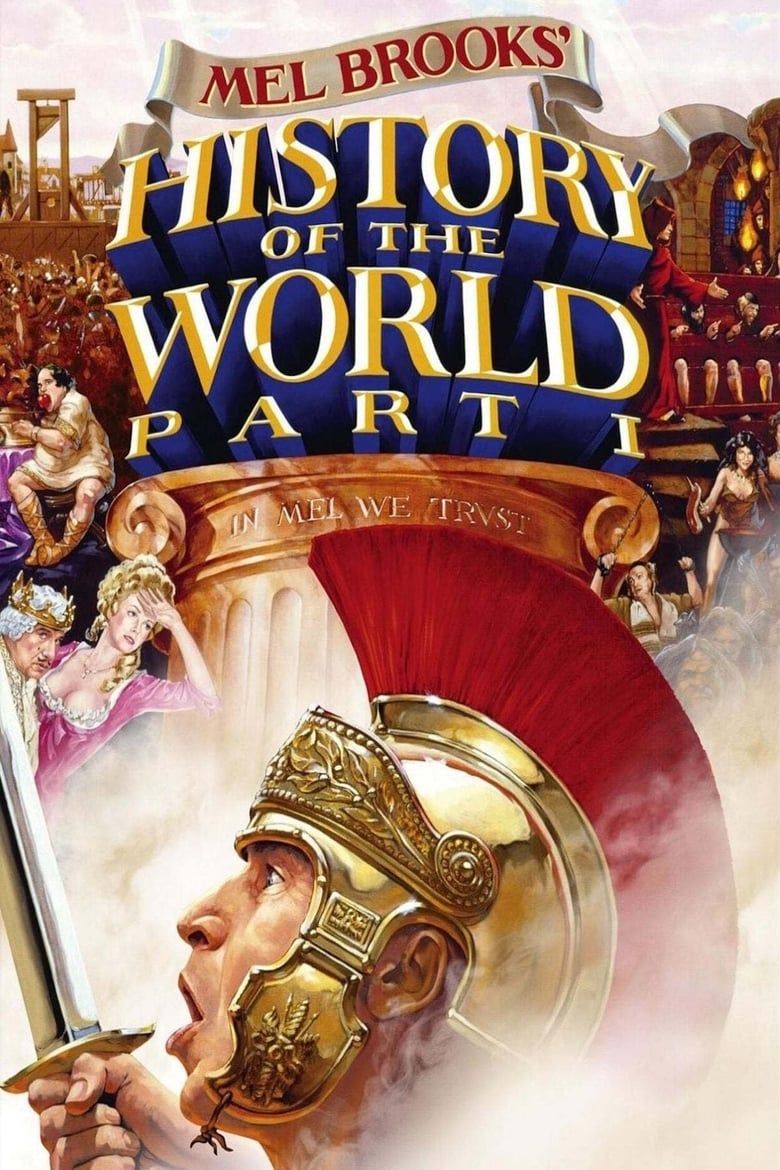
History of the World: Part I is a comedic film directed by Mel Brooks, released in 1981. It provides a humorous and fictionalized portrayal of various historical periods and events, including the Roman Empire, the French Revolution, and the Spanish Inquisition, blending satire with cultural references.
Director Mel Brooks
Release Date June 12, 1981
Cast Dom DeLuise , Mel Brooks , Madeline Kahn , Harvey Korman , Cloris Leachman , Ron Carey , Gregory Hines , Pamela Stephenson , Shecky Greene , Sid Caesar , Mary-Margaret Humes , Orson Welles , Rudy De Luca , Leigh French , Richard Karron , Susette Carroll , Sammy Shore , J.J. Barry , Earl Finn , Suzanne Kent , Michael Champion , Howard Morris , Charlie Callas , Dena Dietrich , Paul Mazursky
Runtime 92 minutes
When it comes to movies about ancient history in general, History of the World Part 1 comes to mind. It features stories from the Stone Age all the way up through the French Revolution, but a good chunk of the room revolves around a character in Ancient Rome.
That character is Comicus, a comedian and philosopher played by Mel Brooks. When Comicus insults Emperor Nero during a performance for Julius Caesar, Nero happens to be in the audience. He spends much of the rest of his storyline avoiding being captured by soldiers of the Roman Empire.
At the time of its release, the movie didn’t get much critical love beyond the performance of Mel Brooks, but it’s become something of a cult classic among comedy fans today. Hulu even commissioned a sequel series that picks up in other time periods.
21 The Fires Of Pompeii (2008)
Doctor Who Episode 190
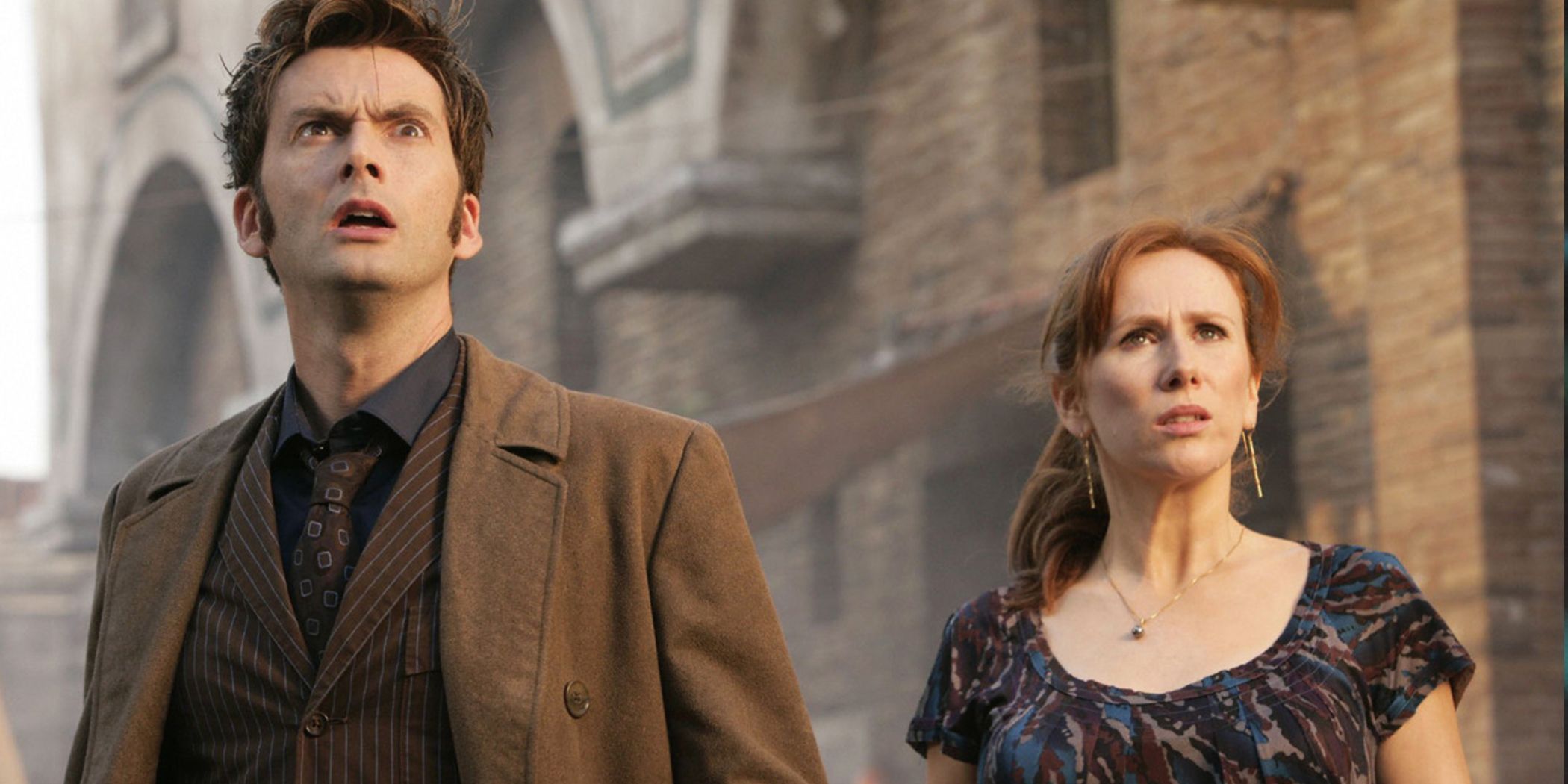
Doctor Who (1963) is a British science fiction television show that follows the adventures of the Time Lord known as the Doctor, who travels through time and space in the TARDIS, a time-traveling ship disguised as a British police box. The Doctor, played by various actors over the years, encounters numerous foes and allies while striving to right wrongs and save civilizations.
Cast William Hartnell , Patrick Troughton , Jon Pertwee , Tom Baker , Frazer Hines , Nicholas Courtney , Pat Gorman , Elisabeth Sladen
Release Date November 23, 1963
Seasons 26
Creator(s) Donald Wilson
“The Fires of Pompeii” is not technically a movie, but it does have a similar feeling to some of the classic movies set in Ancient Rome. It’s an episode of Doctor Who that sees David Tennant’s version of the Doctor and his companion Donna Noble (Catherine Tate) journey to Ancient Rome, specifically to Pompeii, right before the massive volcanic eruption that would destroy it.
Doctor Who is known for putting its own spin on historic events and many of its best-known episodes have a cinematic quality to them. Here, Donna struggles with her future knowledge of what will happen to the people she meets. She implores the Doctor to save people, but that’s not part of what he’s usually able to do in these situations. Tate’s emotional performance as she tries to get people to avoid areas where she knows they’ll be killed makes the episode.
This episode is also known for future Doctor Who stars Peter Capaldi and Karen Gillan appearing as different characters than the ones they would play in the future.
20 The Robe (1953)
Richard Burton's Tale Of The Soldiers Who Crucified Christ
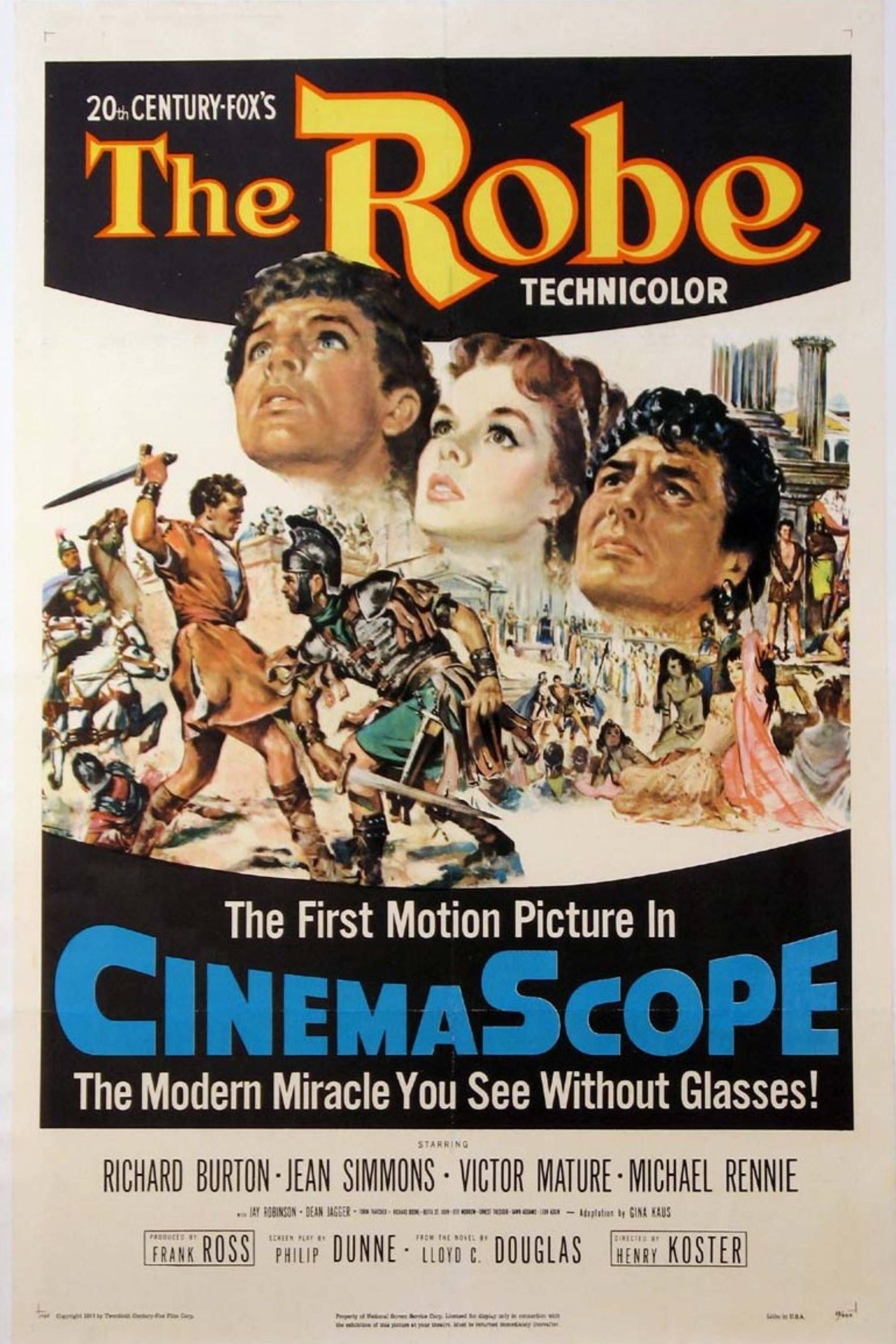
The Robe is a historical drama film set in the 1st century, following the story of Marcellus Gallio, a Roman tribune who wins the robe of Jesus Christ at a Crucifixion auction. As Marcellus becomes obsessed with the robe, he begins to uncover the truth about the life and teachings of Jesus, ultimately leading to a transformation in his own life.
Director Henry Koster
Release Date September 16, 1953
Cast Richard Burton , Jean Simmons , Victor Mature , Richard Boone , Leon Askin
Runtime 135 Minutes
Writers Albert Maltz , Philip Dunne
Movies set in Ancient Rome have been a staple of cinema for decades, with many of the best arriving in theaters in the early-mid 20th century. Released in 1953, The Robe is based on the Biblical tale of the crucifixion of Jesus Christ. Richard Burton stars as a Roman military tribune named Marcellus who commands the unit tasked with crucifying Christ. This was a movie that has the significance of being the first ever released in CinemaScope(via Academia.edu).
When Marcellus comes to accept Jesus as the Son of God, he has to decide if he will denounce him or make a stand. The movie was a successful release concerning the box office and went on to pick up two Oscar wins in five nominations. While it was nominated for Best Picture, it only won for Art Direction and Costume Design.
19 Ben-Hur (2016)
Director Timur Bekmambetov's Take On One Of The First Epic Movies
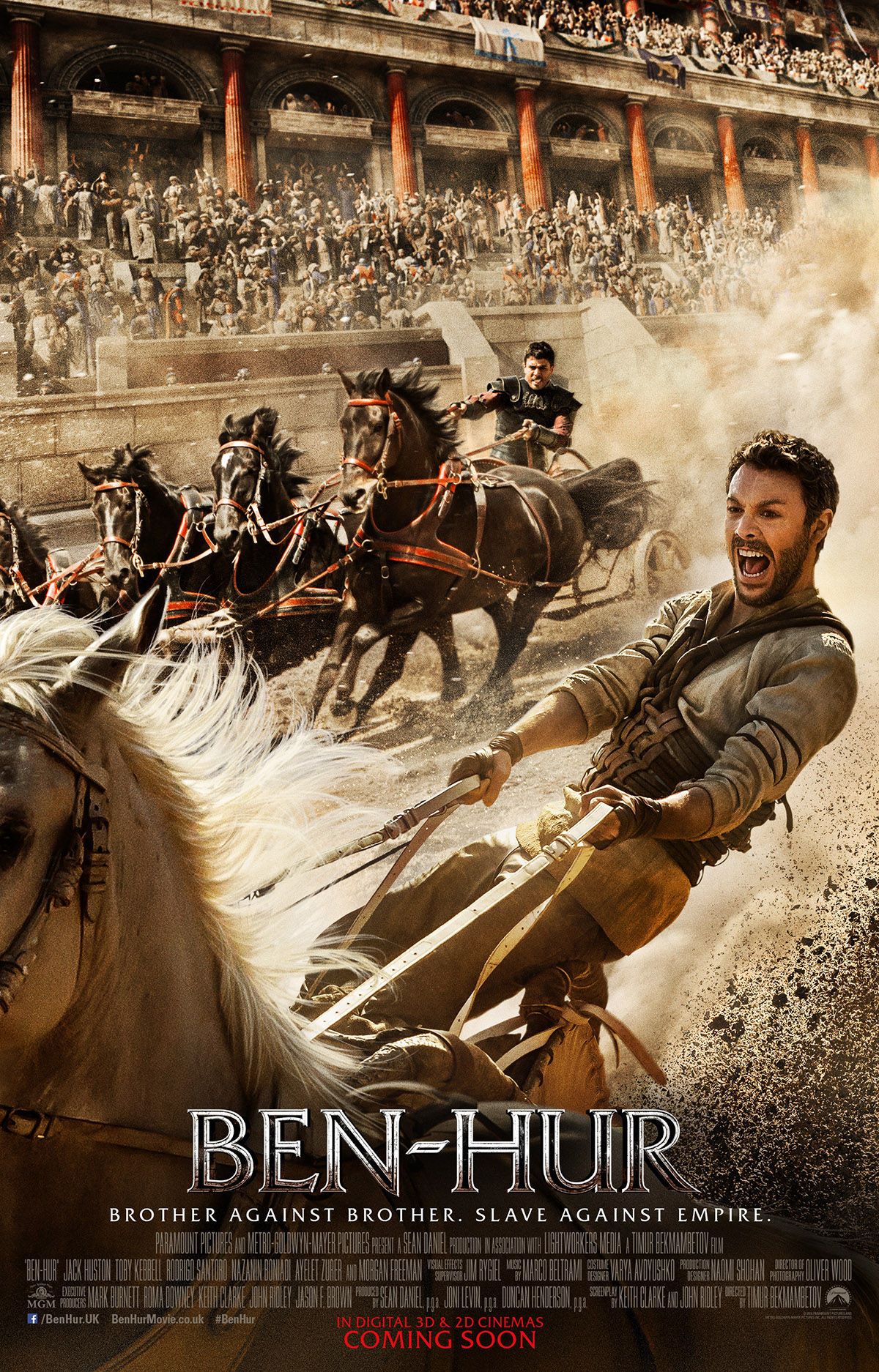
Ben-Hur (2016) is an action epic that retells the story of Judah Ben Hur, a prince falsely accused of treason by his adopted brother and best friend. Now, stripped of his title and separated from his family, Judah spends years at sea enslaved by the Romans. Despite his predicament, Judah will return to his homeland to seek revenge - but instead, may find redemption.
Release Date April 19, 2016
Director Timur Bekmambetov
Runtime 123 Minutes
Writers Keith R. Clarke , John Ridley , Lew Wallace
In 2016, director Timur Bekmambetov (Wanted) re-imagined the epic 1959 Ancient Rome movie Ben-Hur. Bekmambetov tried to push his movie at a much faster pace than the 1959 original, and the remake definitely feels more like a modern action movie than an epic historical tale at points. John Huston stars as Ben-Hur, a man betrayed by a childhood friend during Christ's crucifixion as he seeks both revenge and redemption.
The movie is shorter than the 1959 version, and while this is mostly a good thing, it also lacks the true weight of Ben Hur's redemption compared to the original.
The movie is shorter than the 1959 version, and while this is mostly a good thing, it also lacks the true weight of Ben Hur's redemption compared to the original. Huston is joined in the cast of 2016's Ben Hur by the likes of Morgan Freeman as Sheik Ilderim, Rodrigo Santoro as Jesus (who has a greater role in this version of the story), and Toby Kebbell as Messala.
18 Pompeii (2014)
An Ancient Natural Disaster Gets A Modern Glow-Up

Pompeii tells the story of the eruption of Vesuvius through the eyes of a young Celtic gladiator, Milo, who was sold into slavery as a child. As the disaster approaches, Milo falls in love, forms a rivalry with a fellow gladiator, and comes face-to-face with the man who sold him into slavery.
Director Paul W.S. Anderson
Release Date February 21, 2014
Runtime 105 minutes
Writers Janet Scott Batchler , Lee Batchler , Michael Robert Johnson
The destruction of the Ancient Roman city of Pompeii in AD 79 is one of the earliest natural disasters to be cataloged by historians, with as many as 20,000 people or more losing their lives. Released in 2014, Pompeii is a disaster movie taking place in the Roman city of Pompeii during the devastating Mount Vesuvius eruption.
There was little doubt what would happen in the plot of Pompeii, since the volcano destroyed the entire city, but director Paul W.S. Anderson filled the movie with some huge stars and created an engaging revenge tale to complement the inevitable volcanic destruction. Milo (Kit Harrington) is a man whose parents were murdered when he was a child by Corvus (Kiefer Sutherland), a former general turned senator. The movie won six awards at the Canadian Screen Awards, and Pompeii is fairly historically accurate to Roman history.
17 Caligula (1979)
Malcolm McDowell, Helen Mirren, and Peter O'Toole Lead One Of History's Most Controversial Movies
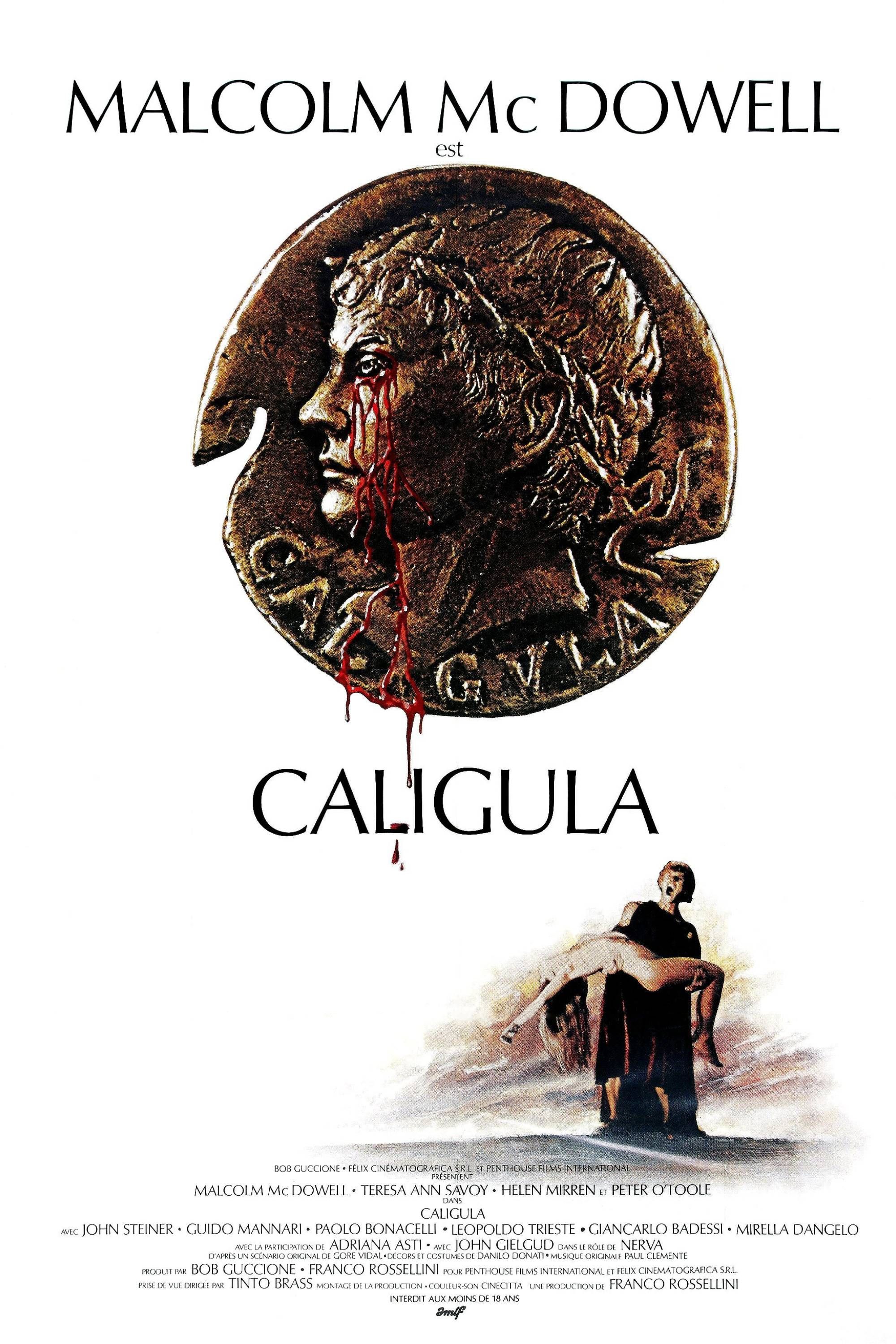
Caligula is a historical drama film directed by Tinto Brass and written by Gore Vidal, based on the life of Roman Emperor Caligula. The film stars Malcolm McDowell as Caligula, alongside Helen Mirren and Peter O'Toole, and explores the emperor's rise to power and subsequent descent into madness and tyranny.
Director Tinto Brass
Release Date August 14, 1979
Cast Malcolm McDowell , Teresa Ann Savoy , Guido Mannari , John Gielgud , Peter O'Toole
Runtime 156 Minutes
Writers Masolino D'Amico
Caligula is an interesting Ancient Rome movie, as it is a historical epic, but also an erotic drama with major stars. Malcolm McDowell (who also co-wrote the script) stars as the Roman Emperor Caligula in the cinematic retelling of the infamous ancient tyrant's downfall, while Helen Mirren stars as his wife, and Peter O'Toole appears as Tiberius. Directed by Tinto Brass, the movie became infamous due to containing — among other things — scenes of supposedly real and completely unsimulated sexual acts.
The movie's sex and violence caused protests, and it ended up being banned in several countries.
Caligula was controversial partly because one of the main producers was Penthouse magazine founder Bob Guccione, while novelist Gore Vidal wrote the script alongside McDowell. The movie's sex and violence caused protests, and it ended up being banned in several countries. It has since become a cult classic, though it isn't a movie set in Ancient Rome for the faint of heart.
16 Risen (2016)
An All-Star Cast Brings To Life The Search For The Body Of Christ
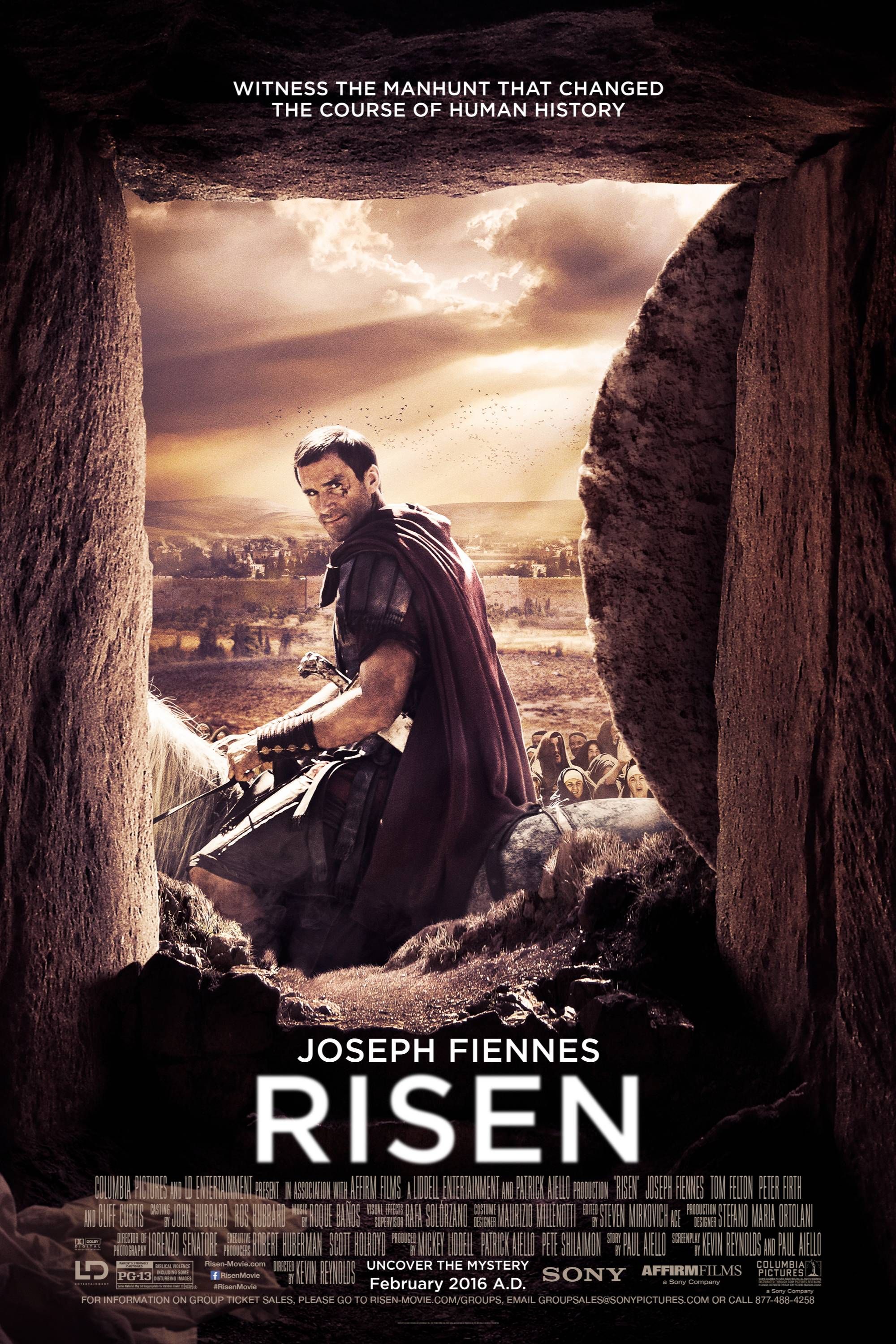
Risen is a biblical drama film that tells the story of Clavius, a Roman tribune tasked by Pontius Pilate to investigate the disappearance of Jesus Christ's body after his crucifixion. As Clavius delves deeper into the mystery, he uncovers a series of events that challenge his understanding of the divine.
Director Kevin Reynolds
Release Date February 18, 2016
Runtime 107 Minutes
Writers Paul Aiello , Kevin Reynolds
A key reason there are so many movies about the Roman Empire is their prominence in the New Testament of The Bible, and Risen is another Ancient Rome movie based on the story of Jesus Christ and his crucifixion. The 2016 movie follows Joseph Fiennes is Clavius, a Roman Tribune who supervises the crucifixion of Jesus. The cast of Risen is especially notable, with Fiennes joined by the likes of Tom Felton of Harry Potter fame.
When Jesus rises from the dead, Pontius Pilate orders Clavius to find who "stole" the body to stop a possible uprising. He sets out and interviews people with his aide Lucas (Tom Felton) and soon discovers that this situation is greater than he ever believed. The movie was a slight box office success and received positive reviews, and is a unique story among the many adaptations of historical events in the swords-and-sandles subgenre.
15 Barabbas (1961)
A 1961 Epic Shot In Rome Itself
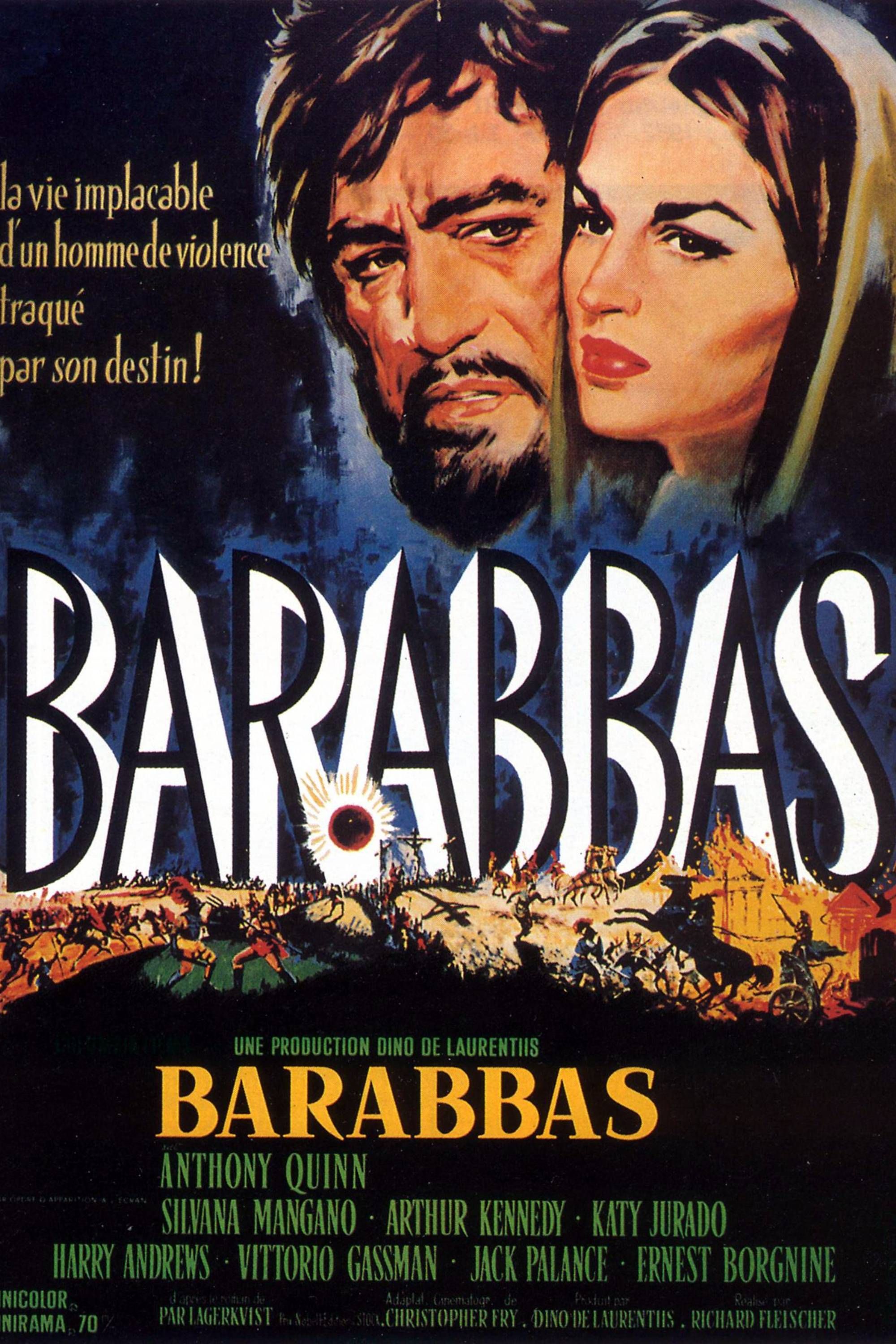
Barabbas is a 1961 epic film that tells the story of the titular character, a thief who was spared from crucifixion when Pontius Pilate offered the crowd a choice between Barabbas and Jesus Christ. The film follows Barabbas' journey as he becomes a gladiator, a Christian, and eventually a martyr.
Director Richard Fleischer
Release Date December 23, 1961
Cast Anthony Quinn , Silvana Mangano , Arthur Kennedy , Katy Jurado , Harry Andrews
Runtime 137 Minutes
Writers Salvatore Quasimodo , Nigel Balchin , Christopher Fry , Diego Fabbri , Ivo Perilli
The religious epic Barabbas tells the story of Barabbas (Anthony Quinn), a New Testament biblical figure. It was directed by Richard Fleischer, a key figure of the Golden Age of Hollywood known for such classics as 20,000 Leagues Under the Sea, Doctor Dolittle, and the 1970s dystopian sci-fi Soylent Green. Unlike many of the movies about Rome, this was actually shot in Rome, as well as in Verona, Italy.
The National Board of Review named it one of the Top Foreign Films of the Year when it was released back in 1961.
The 1961 movie has some huge and impressive set pieces, including a gladiatorial battle and a crucifixion shot during an actual solar eclipse. Barabbas earned $2.9 million at the box office and has received positive reviews from contemporaneous and modern critics alike. The National Board of Review named it one of the Top Foreign Films of the Year when it was released back in 1961.
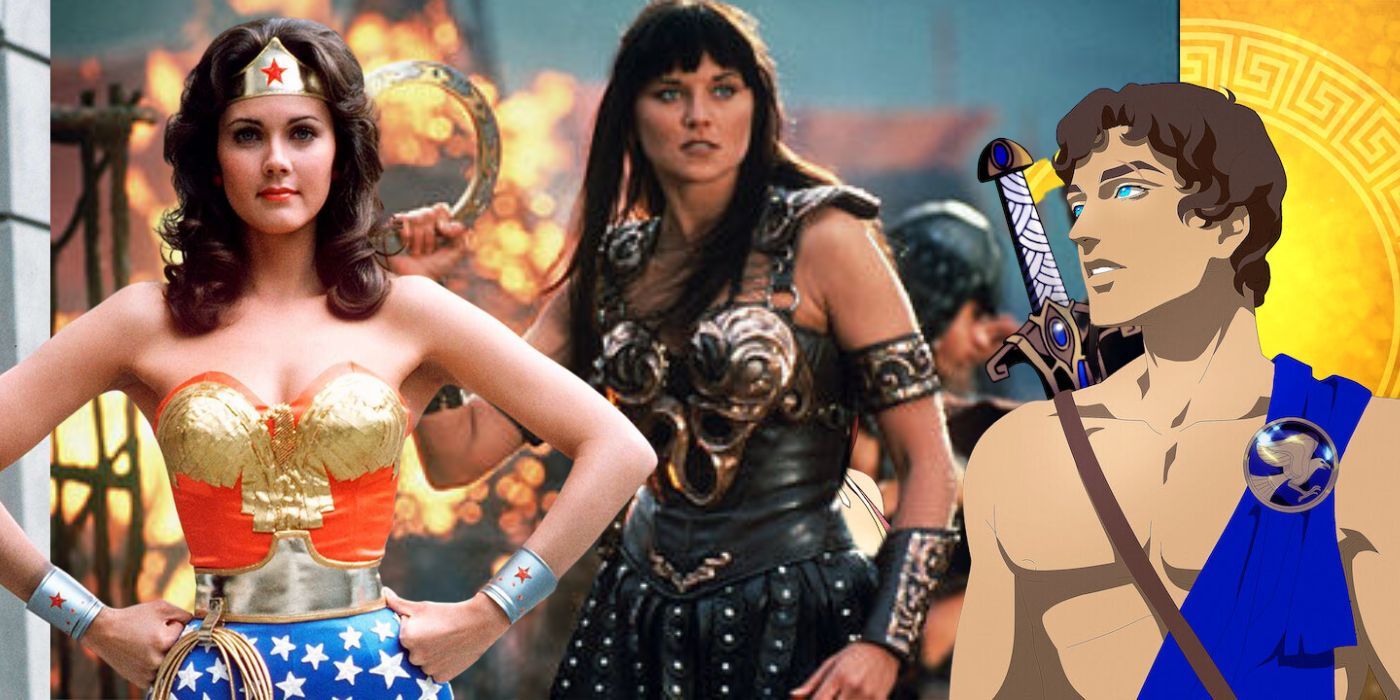
Related
25 Best TV Shows About Greek Mythology
From Hercules and The Odyssey to Xena and Wonder Woman, these are the best Greek mythology shows.
14 A Funny Thing Happened On The Way To The Forum (1966)
The Musical Comedy About One Of The First Comedians
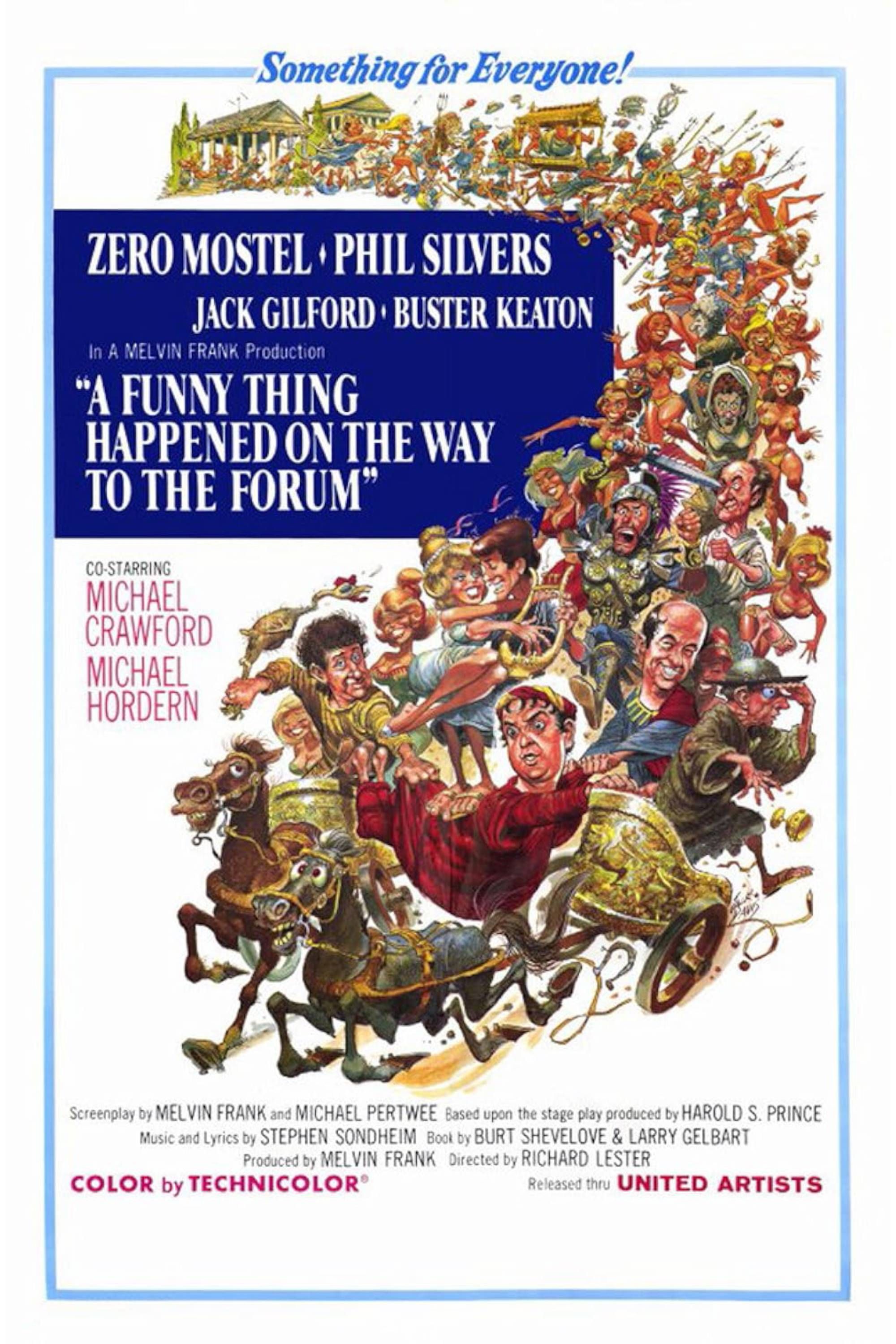
A Funny Thing Happened On The Way To The Forum is a musical comedy film based on the plays of Roman playwright Plautus. The film follows the story of Pseudolus, a clever and cunning slave who attempts to win his freedom by helping his young master woo the beautiful Philia. Directed by Richard Lester, the film features an all-star cast including Zero Mostel, Phil Silvers, and Jack Gilford.
Director Richard Lester
Release Date October 16, 1966
Cast Zero Mostel , Jack Gilford , Phil Silvers , Buster Keaton , Michael Crawford
Runtime 99 Minutes
Writers Larry Gelbart , Burt Shevelove , Michael Pertwee , Melvin Frank , Stephen Sondheim
The majority of movies featuring the Roman Empire are serious dramas that are epic in scope, with a significant portion based on Biblical events, natural disasters, or bloody ancient conflicts — in other words, they deal with often-bleak stories with a healthy amount of gravitas. This is why A Funny Thing Happened On The Way To The Forum is a bit different from other movies about Ancient Rome.
For starters, it's a musical comedy. Based on the stage musical of the same name, which is based on the works of Roman comedic playwright Plautus, it tells the story of an enslaved man named Pseudolus, played by Zero Mostel, who attempts to earn his freedom by helping his master win the heart of the girl next door. With music and lyrics by Stephen Sondheim, A Funny Thing Happened On The Way To The Forum went on to win an Oscar for Best Music.
13 Titus (1999)
Anthony Hopkins Leads A Hidden Thespian Gem
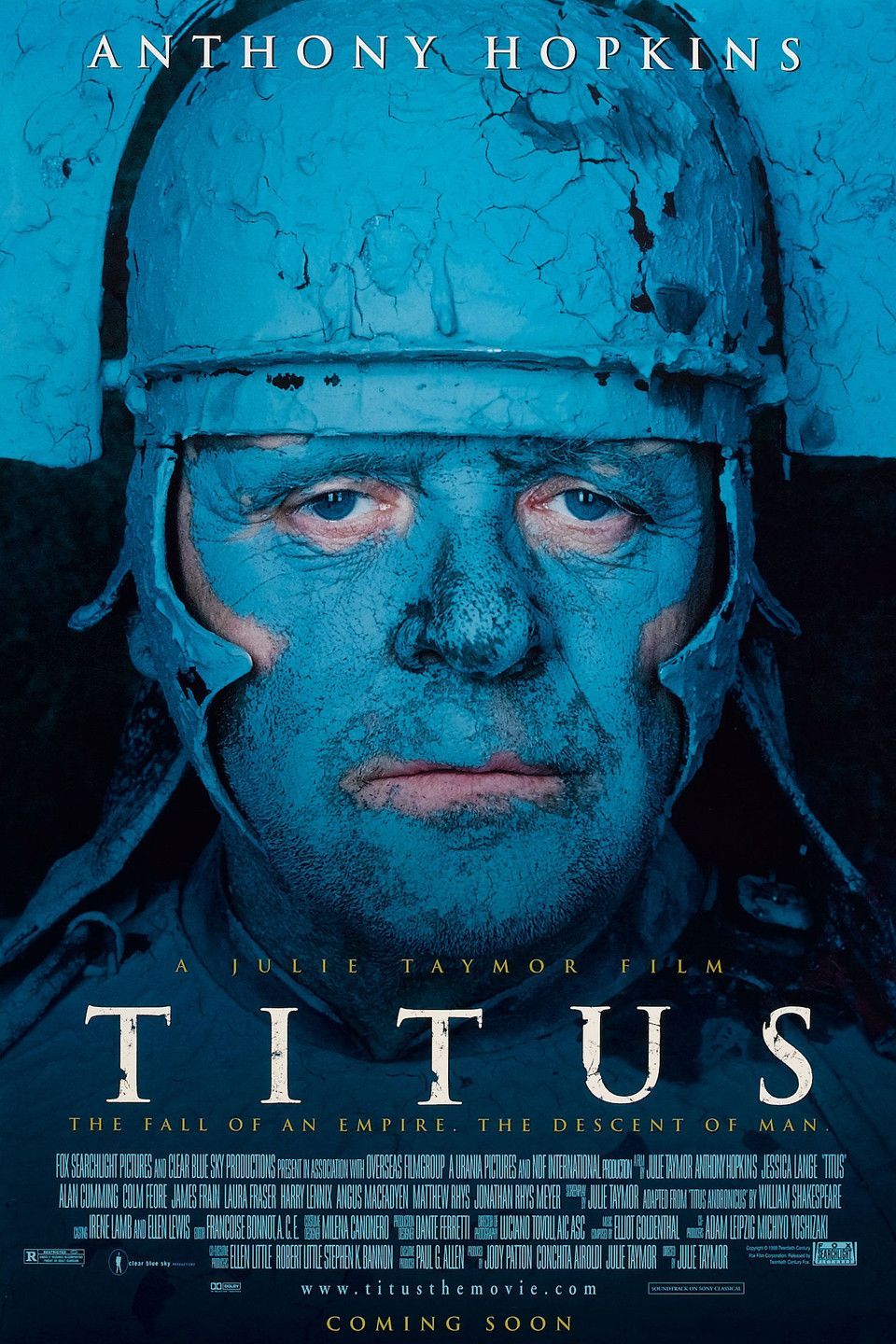
Titus is a Shakespearean tragedy film directed by Julie Taymor and based on the play Titus Andronicus. Starring Anthony Hopkins and Jessica Lange, the film unfolds the violent and vengeful acts between Roman general Titus Andronicus and Tamora, Queen of the Goths. Set in a stylized, anachronistic version of ancient Rome, the narrative explores themes of revenge, power, and legacy through a series of brutal, dramatic confrontations.
Director Julie Taymor
Release Date December 24, 1999
Runtime 162 Minutes
Writers William Shakespeare , Julie Taymor
William Shakespeare wrote several plays with stories based in Ancient Rome, and these have formed the bases for several of the best movies about Ancient Rome. Helmed by Julie Taymor, Titus is a film adaptation of Shakespeare's playTitus Andronicus and stars Anthony Hopkins as the title character. Though it bends and at times smashes the bounds of historical accuracy (at least insomuch as it exists in Shakespeare's work), Titus is for the most part set in actual Ancient Rome.
Hopkins is joined on-screen by Jessica Lange and Alan Cummings, playing Tamora, Queen of the Goths, and Saturninus, Emperor of Rome, respectively.
Hopkins is joined on-screen by Jessica Lange and Alan Cummings, playing Tamora, Queen of the Goths, and Saturninus, Emperor of Rome, respectively. The film made only $3 million at the box office on a budget of $25 million (via Box Office Mojo) and received mixed reviews from critics, but has since achieved cult status, making it easily one of the best movies set in Ancient Rome.
12 The Last Temptation Of Christ (1988)
Willem Defoe And David Bowie Lead Martin Scorsese's Controversial Take On The Crucifixion
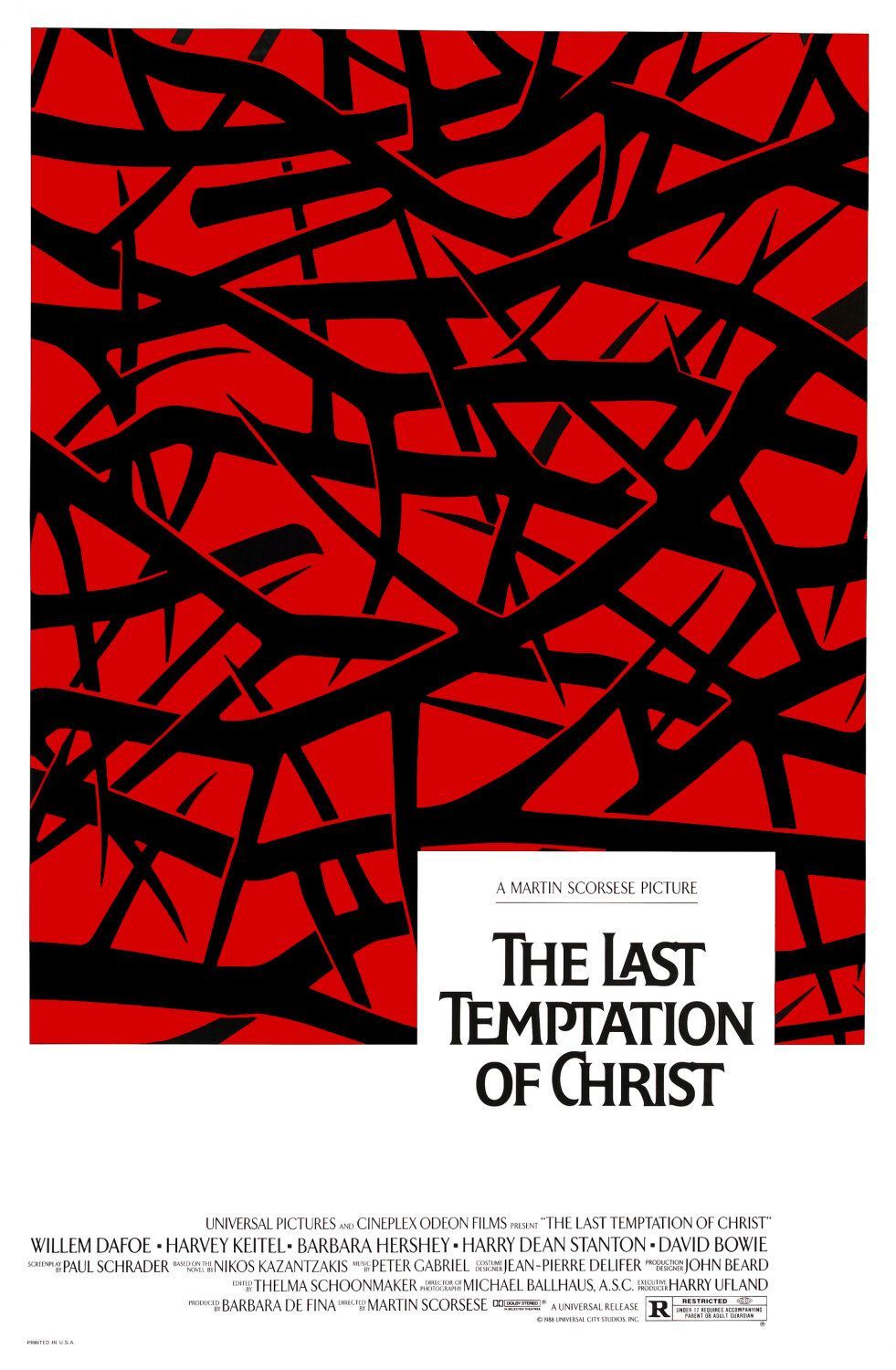
The Last Temptation of Christ is a 1988 film directed by Martin Scorsese, based on the novel by Nikos Kazantzakis. Willem Dafoe stars as Jesus, who grapples with his divinity and humanity. The story explores Jesus' internal struggles and the temptations he faces. Harvey Keitel and Barbara Hershey also feature prominently in this controversial interpretation of the life of Christ.
Release Date August 12, 1988
Runtime 164 Minutes
Of all the Biblical movies that are set during the time of Ancient Rome, The Last Temptation of Christ is easily one of the most widely known. This is in part due to its director, as famed filmmaker Martin Scorsese took a break from his mafia movies to create his own Biblical epic in 1988. Set in the Roman Empire, The Last Temptation of Christ told the story of the eventual crucifixion of Jesus Christ at the hands of the Roman governor of Judea, Pontius Pilate.
Unlike a later story of Jesus's execution, The Passion of the Christ, churches did not take well to Scorses's take and protested the movie thanks to a scene where Jesus was tempted by Satan. With Willem Defoe as Jesus and David Bowie as Pilate, the movie was still a critical success, with Scorsese picking up an Oscar nomination for Best Director.
11 The Fall Of The Roman Empire (1964)
The 1964 Historical Drama That Helped Shape Gladiator
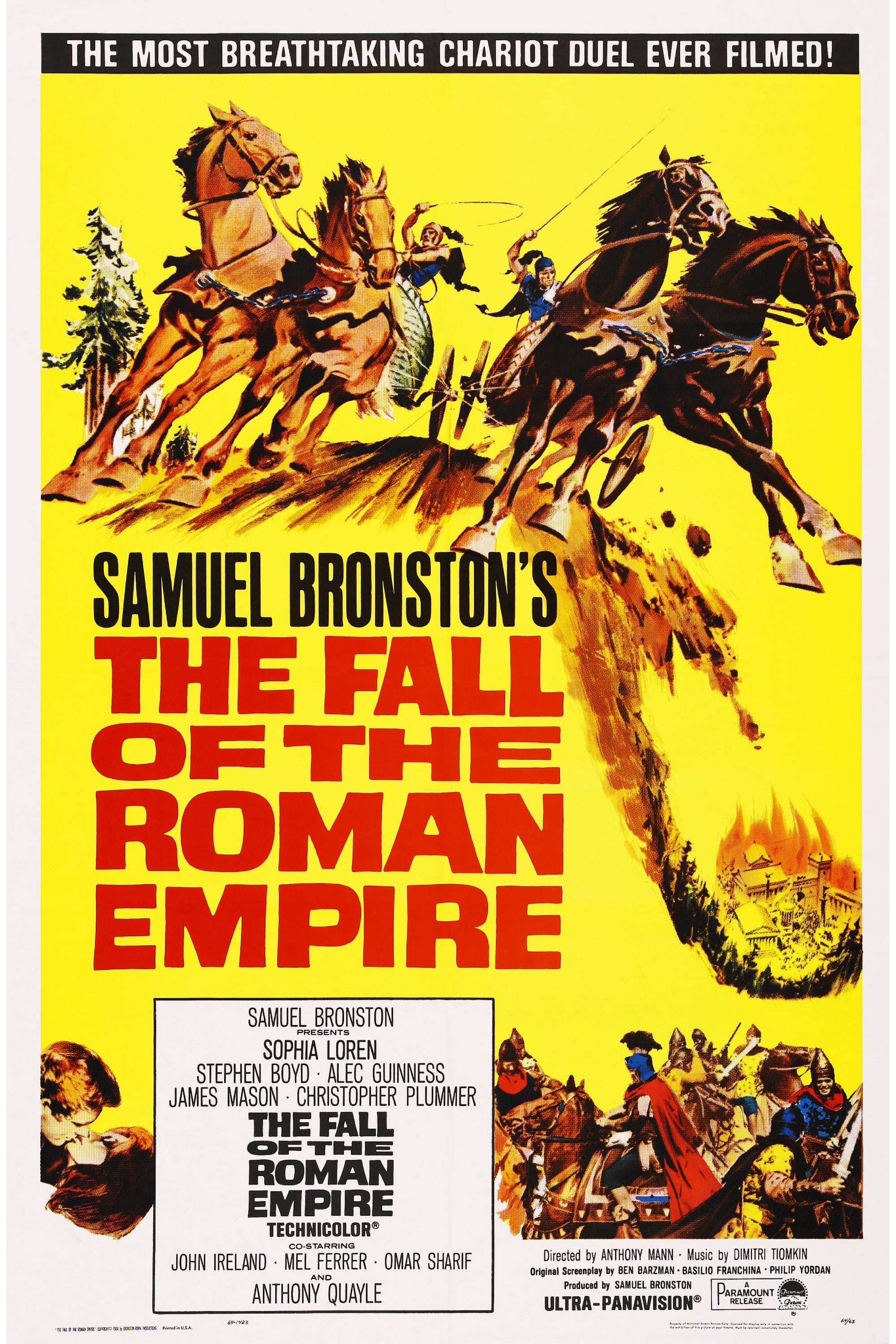
The Fall of the Roman Empire is a historical epic directed by Anthony Mann, set in the 2nd century AD during the reign of Marcus Aurelius. The film follows the ruler's struggle to maintain power and unity within the empire, as corruption and rivalries threaten its stability.
Director Anthony Mann
Release Date March 24, 1964
Runtime 188 Minutes
Writers Philip Yordan , Ben Barzman , Basilio Franchina
Spectacle, drama, political intrigue, and lust for power are the core elements of 1963's The Fall of the Roman Empire. It was directed by Anthony Mann, the acclaimed stage actor who made the transition to movies during the 1930s and 40s, with this movie about Ancient Rome being one of the last of his storied career. Interestingly, Mann was also initially the director of Spartacus in 1960.
Essentially a historical epic in its purest form, The Fall Of The Roman Empire covers the might and expanse of Rome's greatest age and how it fell from within.
Essentially a historical epic in its purest form, The Fall Of The Roman Empire covers the might and expanse of Rome's greatest age and how it fell from within. This 1964 epic shares much in common with Gladiator, such as the presence of Marcus Aurelius, although it's much more grounded than Ridley Scott's interpretation of events. The movie picked up one Oscar nomination and won a Golden Globe for Best Music.
10 Satyricon (1969)
An Experimental Love Story Set In The Reign Of Nero
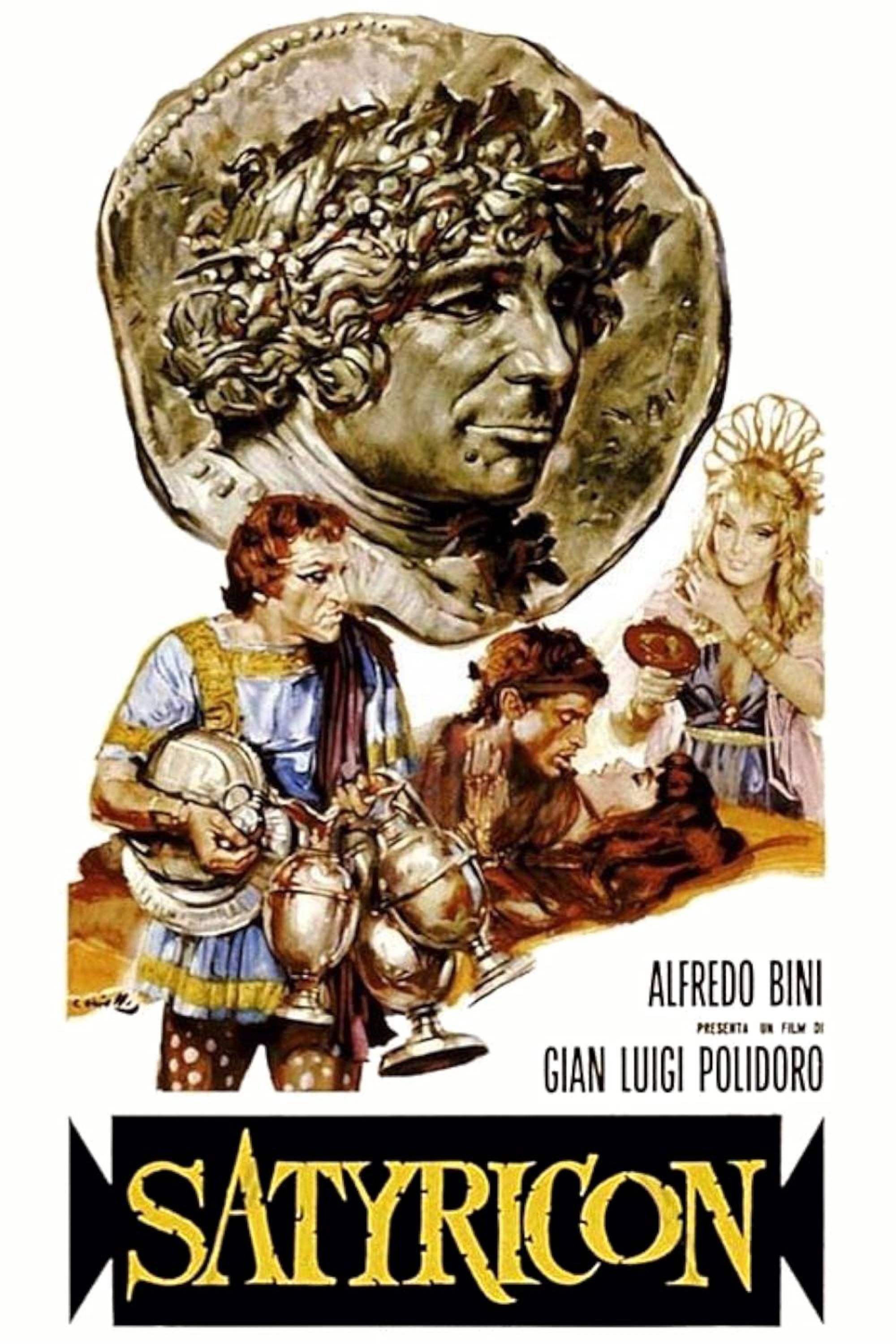
Satyricon is a 1969 Italian fantasy drama film directed by Federico Fellini, loosely based on the ancient Roman novel of the same name. The film follows the journey of Encolpio, a young man searching for his lover Gitone in ancient Rome, amidst a backdrop of decadence, excess, and moral decay.
Director Gian Luigi Polidoro
Release Date March 27, 1969
Cast Tina Aumont , Don Backy , Mario Carotenuto , Franco Fabrizi , Francesco Pau
Runtime 120 Minutes
Writers Rodolfo Sonego
One of the most abstract and psychelic movies about the Roman Empire, Satyricon is an episodic and fantastic story of life in Ancient Rome that is based more on the legends of hedonism and pleasure than actual facts. The colors, costumes, and general atmosphere are all exaggerated to match the equally fantastic time period that encompassed the chaotic reign of Emperor Nero — an ancient ruler famed for his despotic and self-serving style of leadership, which included making his horse a senator.
As experimental with its structure as it is with its aesthetic, Satyricon doesn't tell a linear story in a conventional way but instead breaks up the narrative into nine different episodes that follow the main character as he tries to win back his young lover. Federico Fellini earned his third Oscar nomination for directing this highly stylized cinematic interpretation of Ancient Rome.
9 The Passion Of The Christ (2004)
Mel Gibson's Unflinching Recreation Of The Final Days Of Jesus
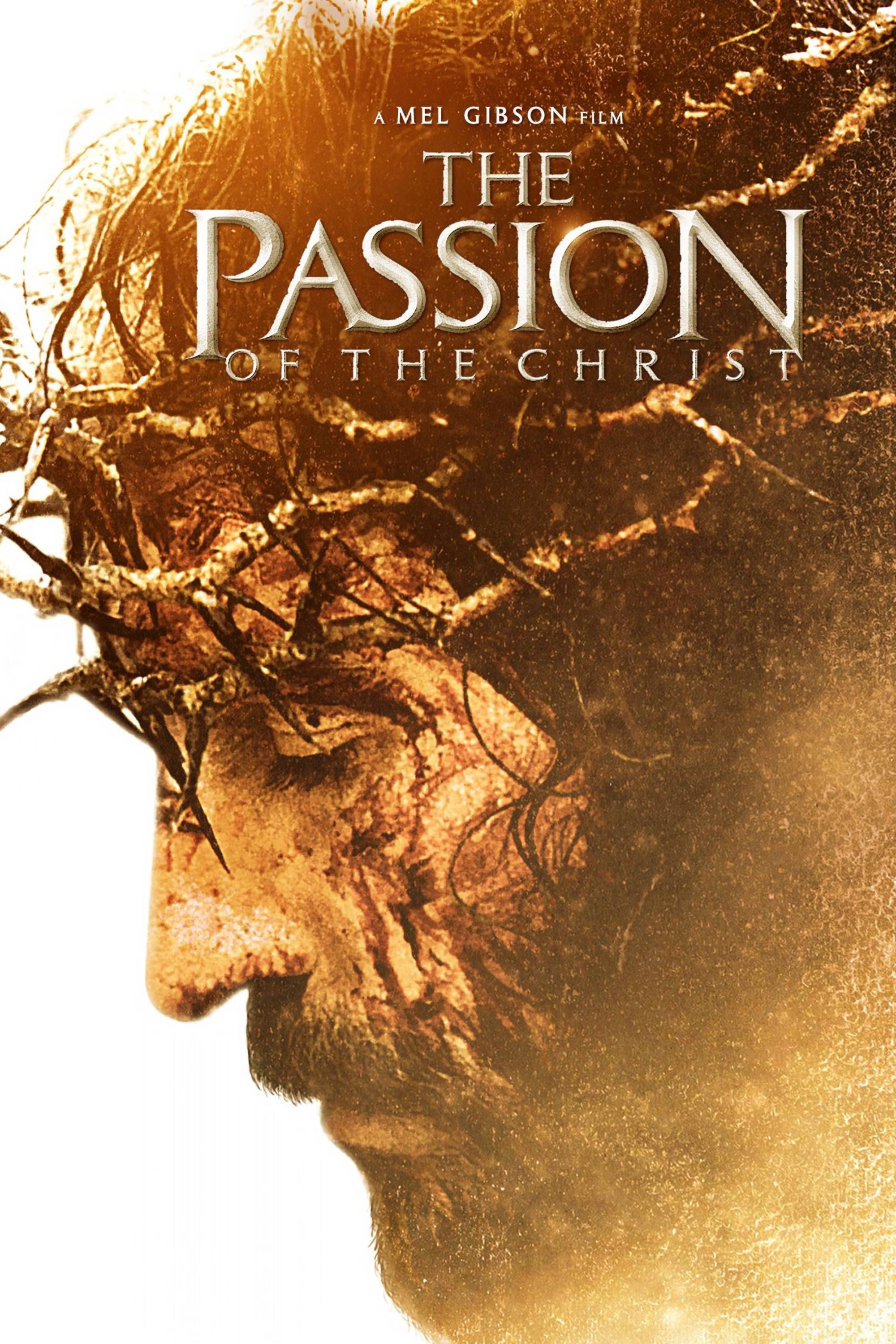
The Passion of the Christ is a dramatic retelling of the final twelve hours of Jesus of Nazareth's life, depicting his crucifixion in vivid detail. Directed by Mel Gibson, the film is noted for its intense portrayal of Jesus's suffering and sacrifice, aiming to present an authentic and profound account based on the New Testament.
Release Date February 25, 2004
Cast Jim Caviezel , Maia Morgenstern , Christo Jivkov , Francesco De Vito , Monica Bellucci , Mattia Sbragia , Toni Bertorelli , Luca Lionello , Hristo Shopov , Claudia Gerini , Fabio Sartor , Giacinto Ferro , Aleksander Mincer , Sheila Mokhtari , Lucio Allocca , Paco Reconti , Adel Bakri , Luciano Dragone , Adel Ben Ayed , Franco Costanzo , Lino Salemme , Emanuele Gullotto , Francesco De Rosa
Runtime 127 Minutes
While The Last Temptation of Christ received more critical praise, Mel Gibson's 2004 movie about the death of Jesus Christ arrived almost two decades later to a slew of awards and box office success. In 2004, Mel Gibson directed The Passion of the Christ, which went into great detail about the torture and crucifixion of Jesus at the hands of the Roman governor of Judea, Pontius Pilate.
Mel Gibson's vision was unflinching, and didn't shy away from any of the suffering Christ suffered through in his final days.
Unlike Scorsese's movie, The Passion of the Christ was less reliant on Jesus's journey to the cross and was more focused on the pain and bloody torture he suffered at the hands of the Roman Empire. Mel Gibson's vision was unflinching, and didn't shy away from any of the suffering Christ suffered through in his final days. What resulted was churches supporting it to the level of a $612 million box office take, the highest-grossing R-rated movie domestically (via Box Office Mojo).
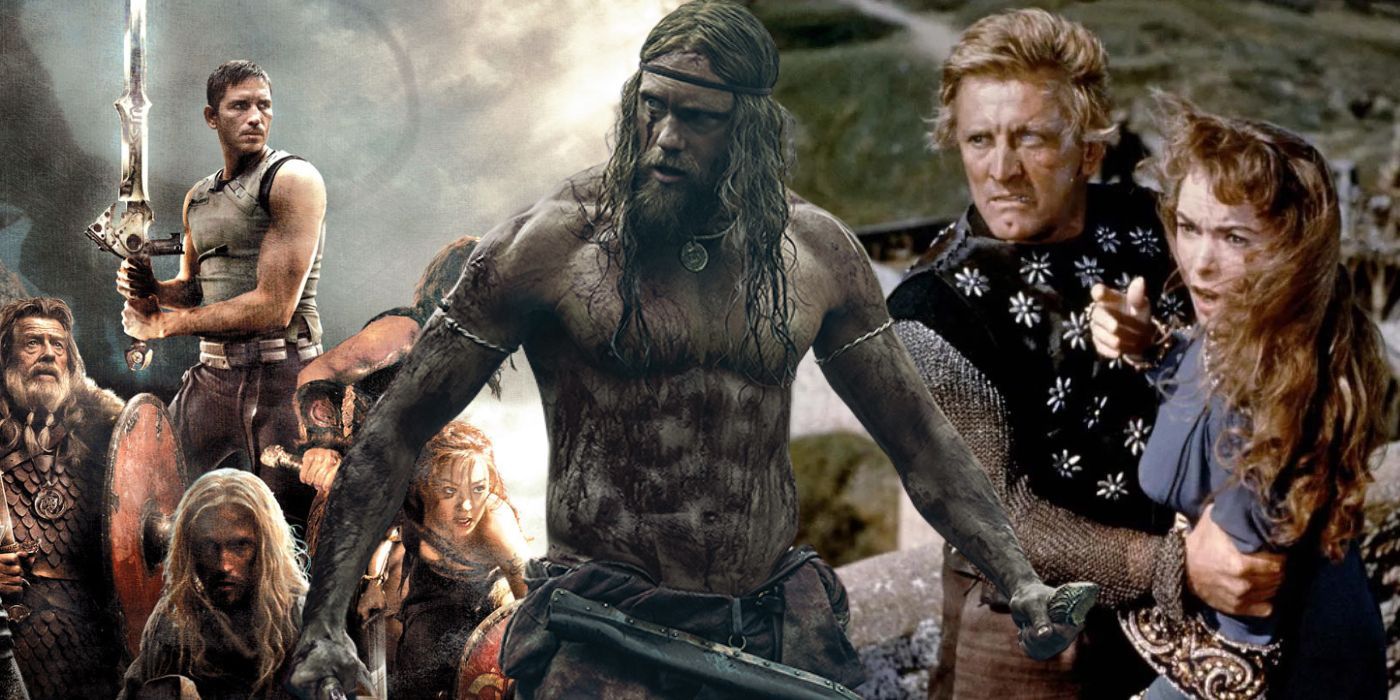
Related
The 25 Best Viking Movies Of All Time, Ranked
From the heroism of Outlander to the humor of Erik the Viking, the best Viking movies show why this unique ancient culture captivates audiences.
8 Life Of Brian (1979)
Monty Python's Hilarious Take On Life In The Biblical Age
Life of Brian
Director Terry Jones
Cast Graham Chapman , John Cleese , Terry Gilliam , Michael Palin , Eric Idle , Terry Jones
Runtime 1h 34m
Monty Python is one of the most celebrated comedy troupes of all time, with their bizarre style of borderline-nonsensical comedy influencing everything that came after to some degree, whether from their native UK or in the United States. One of Monty Python's most polished feature films, Life of Brian is one of the most accurate depictions of life in a Roman province ever put on the silver screen.
When it comes to movies about Rome, it doesn't take place in the capital city itself but in the Roman province of Judea, and it includes a lighthearted but realistic look at life under Roman rule. It's not always funny, either, as sometimes the satire takes a biting turn when it comes to the tyranny of the Romans and the local Judean authorities. The movie remains one of the highest-ranking British comedies ever made on several best-of lists.
Life of Brian is available to stream on Netflix.
7 Cabiria (1914)
The Early Historic Screened For President Woodrow Wilson
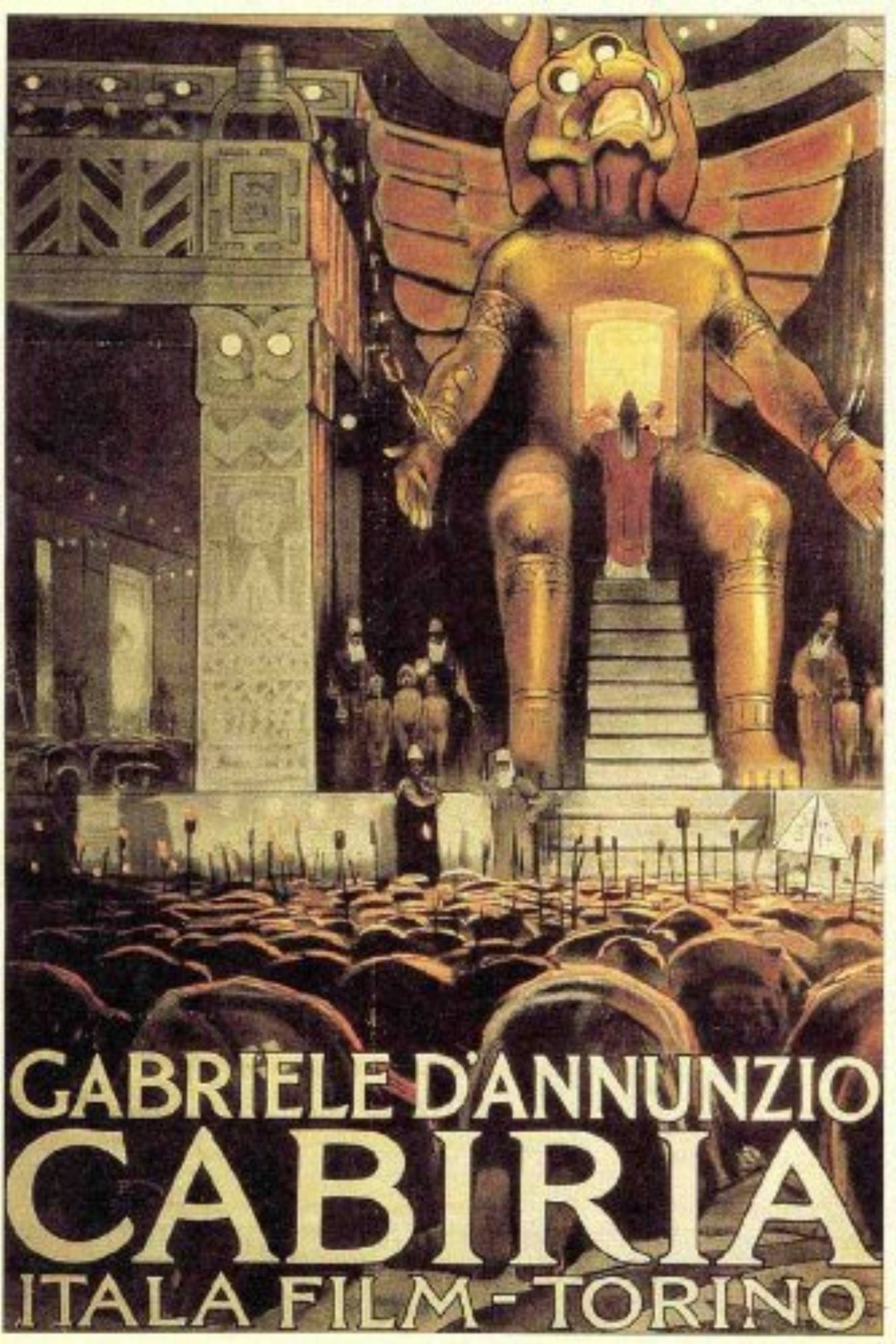
Cabiria is a silent Italian epic film directed by Giovanni Pastrone. Released in 1914, the film is set during the Second Punic War and follows the story of a young girl named Cabiria, who is saved by a noble Roman named Fulvio Axilla and later becomes embroiled in a series of adventures and battles.
Director Giovanni Pastrone
Release Date June 1, 1914
Cast Carolina Catena , Lidia Quaranta , Gina Marangoni , Dante Testa , Umberto Mozzato
Runtime 148 Minutes
Writers Giovanni Pastrone
Movies about Ancient Rome have existed since almost the dawn of cinema, as evidenced by Cabiria, the Federico Fellini directed film that's over a century old. Cabiria is set during the Second Punic War and depicts many of the most famous moments of the conflict, including Hannibal's march across the Alps, the Siege of Syracuse, and Roman general Scipio's military campaign in Northern Africa, to name a few. Martin Scorsese credits this film as inventing the epic genre (via Roger Ebert).
If Scorcese is correct, that makes Cabiria the spiritual ancestor of films like Ben-Hur and Gladiator .
If Scorcese is correct, that makes Cabiria the spiritual ancestor of films like Ben-Hur and Gladiator. It was restored and re-released at the 2006 Cannes Film Festival, and during its original release in 1914, it was the first film to ever be screened at the White House, showing on the lawn for President Woodrow Wilson.
6 Quo Vadis (1951)
The Movie That Saved MGM Studios
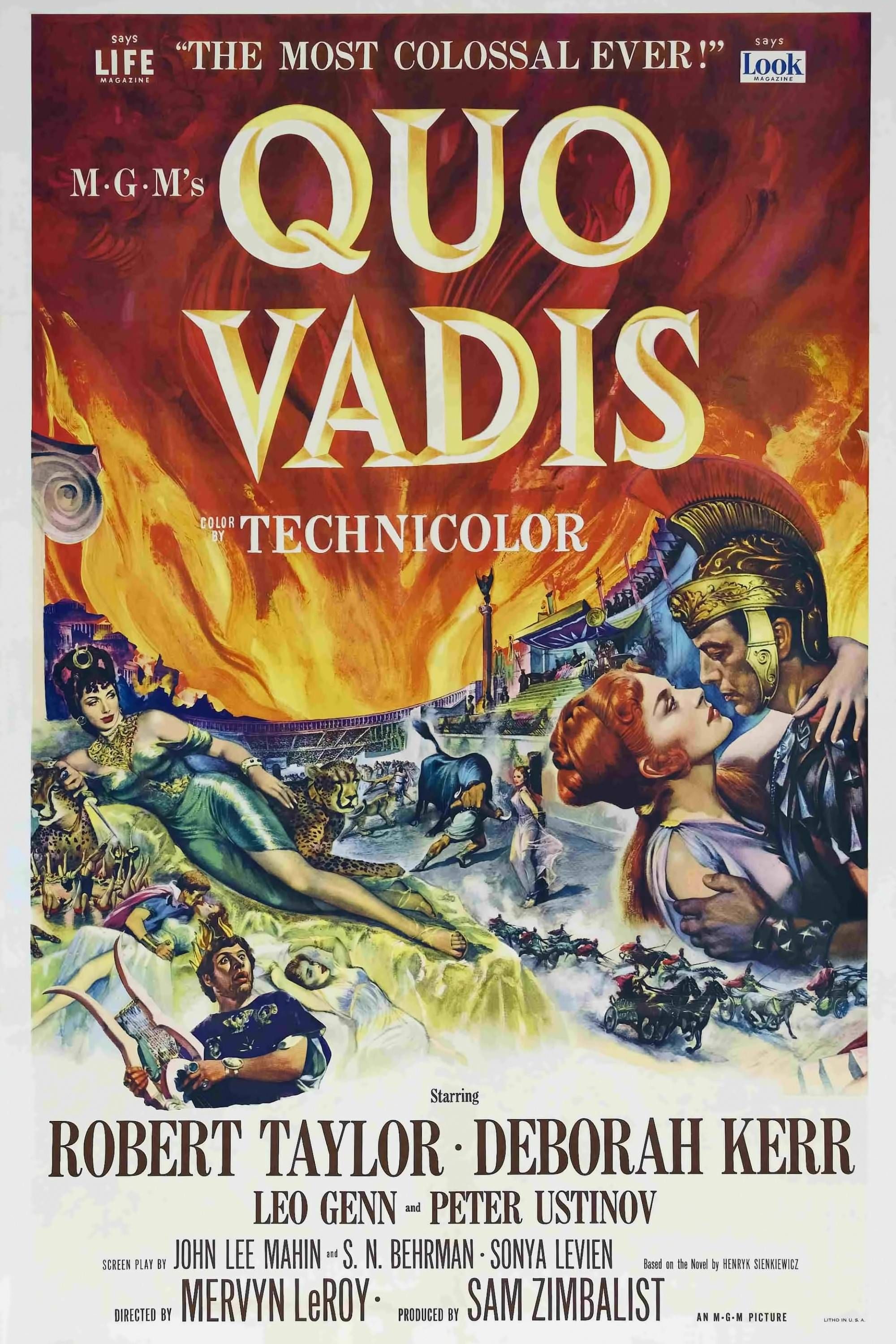
Quo Vadis is a historical epic film set in ancient Rome during the reign of Emperor Nero. The story follows Marcus Vinicius, a Roman officer who falls in love with a Christian woman named Lygia, and his subsequent conversion to Christianity, which leads to a clash with the Emperor.
Director Mervyn LeRoy
Release Date November 8, 1951
Cast Robert Taylor , Deborah Kerr , Leo Genn , Peter Ustinov , Patricia Laffan
Writers Sonya Levien , S. N. Behrman , John Lee Mahin
Runtime 171 Minutes
Often credited with saving MGM from bankruptcy, Quo Vadis is an epic historical drama that combines historical with fictional elements to tell the story of the Roman Empire's clash with Christianity and the treatment of early Christians. Quo Vadis was directed by Mervyn LeRoy, one of the first directors to work with Warner Bros before he moved over to MGM. It's a unique take on the Biblical epic subgenre of Ancient Rome movies, and is especially noteworthy for not simply focusing on a single story from the New Testament.
It stars Robert Taylor, Deborah Kerr, Leo Genn, and Peter Ustinov, with narration by Walter Pidgeon (Funny Girl, Forbidden Planet). It was both a box office and a critical success, earning $21 million on a $7 million budget (via Box Office Mojo) and mixed to positive reviews. The movie picked up eight Oscar nominations, although it didn't win any of them.

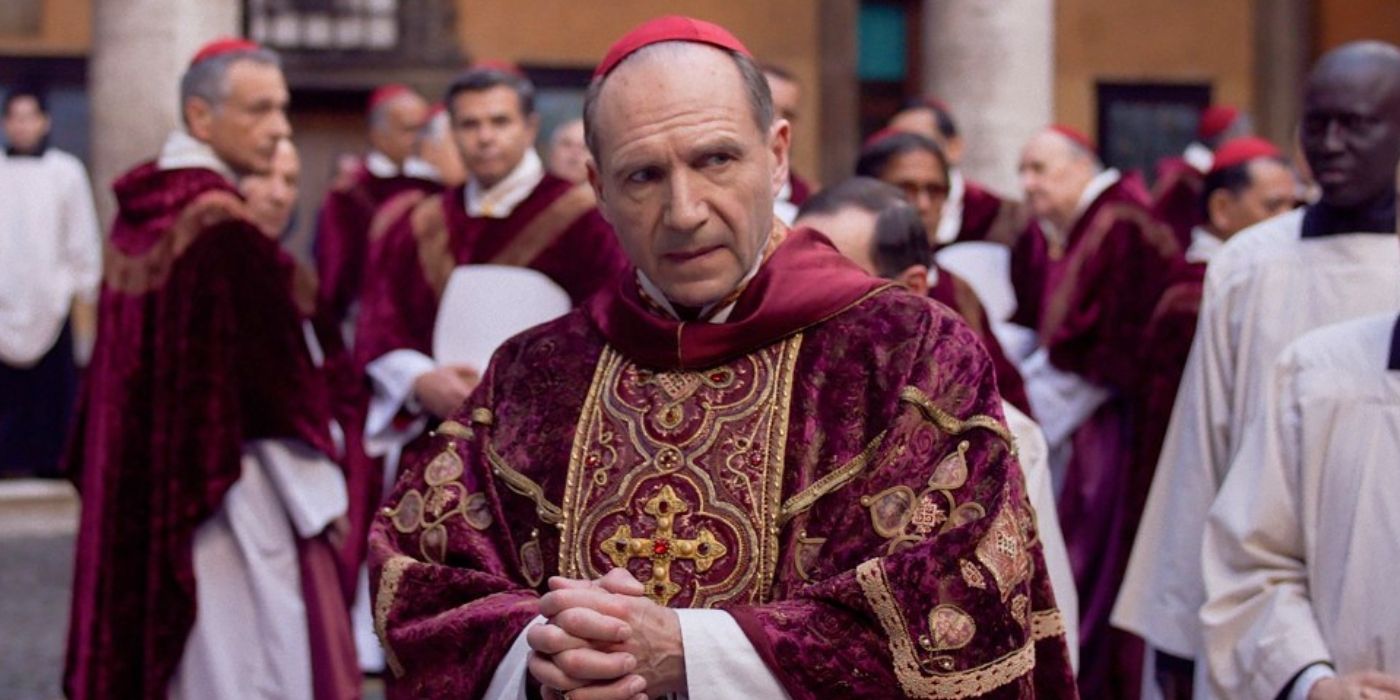




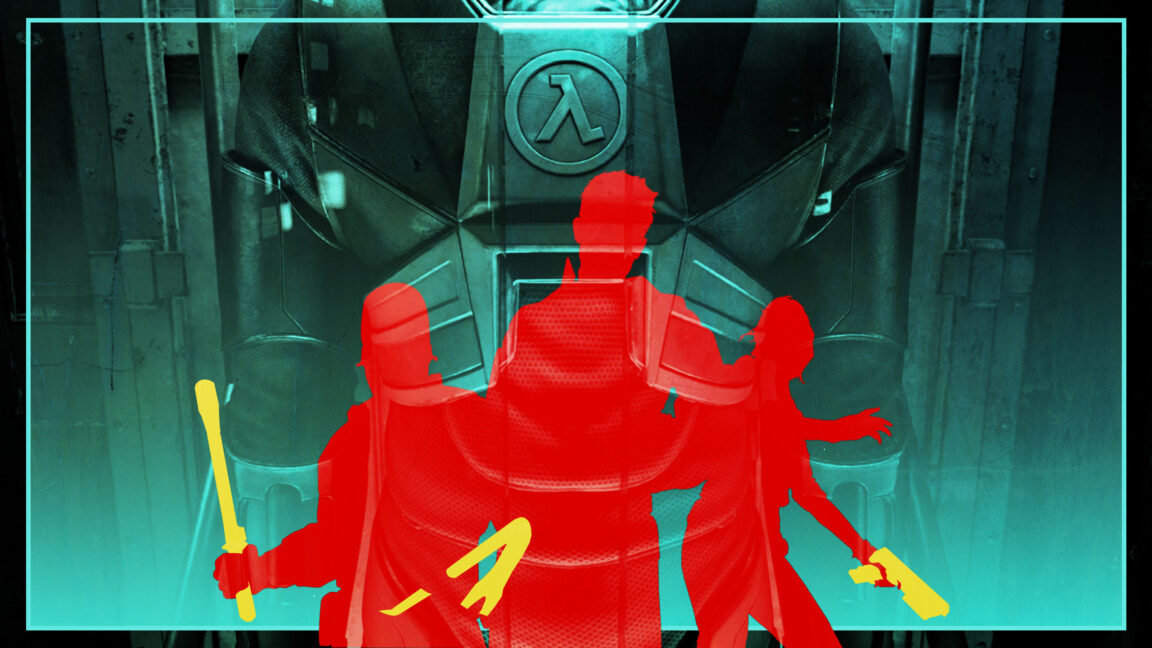

:quality(85):upscale()/2024/11/15/862/n/1922153/911b7d1c6737a4111b6008.57513343_.png)
 English (US) ·
English (US) ·